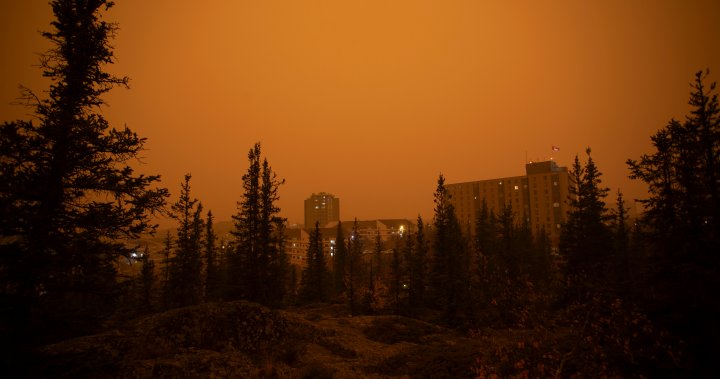Multiple communities in western Canada have been affected by wildfires, prompting emergency evacuation orders and alerts. In Fort Nelson, British Columbia, residents are under evacuation orders due to an out-of-control wildfire burning nearby. The wildfire, located just west of the community, has forced around 3,500 residents to leave their homes. The mayor of the Northern Rockies regional municipality described the wildfire behaviour in northern B.C. as significant, indicating that the situation is worsening. Although the fire showed reduced behaviour on Saturday, officials noted that dry conditions could quickly change the situation. Alberta also experienced wildfires over the weekend, with evacuation orders expanding to include Fort McMurray and surrounding communities due to the risk of wildfire.
The Regional Municipality of Wood Buffalo in Alberta expanded its evacuation alert to include several communities such as Anzac and Fort McMurray First Nation #468. The alert requires residents to be ready to leave at a moment’s notice. In Grand Prairie County No. 1, an evacuation order was issued for a wildfire east of Teepee Creek, although it was moving away from the community. In Northern Manitoba, residents of Cranberry Portage were safely evacuated after a wildfire forced them to leave their homes. The emergency measures Coordinator for the RM of Kelsey mentioned that residents have been relocated to hotels in nearby cities due to limited space. The wildfires in these regions have caused reduced visibility and air quality issues in prairie cities such as Calgary, Edmonton, Saskatoon, and Winnipeg.
Prime Minister Justin Trudeau expressed concern about the potential damage caused by the wildfires, emphasizing the need for better preparedness and coordination. Weather experts have been monitoring the situation closely, noting that wildfires have become more active earlier than expected. Although there may be a transition to a more neutral setup with rainfall in the early summer, the wildfire season is expected to remain active throughout the summer. Residents in affected communities have been urged to follow evacuation orders for their safety and the safety of first responders. The impact of the wildfires on air quality and visibility in surrounding cities has raised concerns among officials and residents alike.
The wildfires have not only caused evacuations and threats to homes but have also sparked memories of previous wildfire incidents in affected communities. For residents like Tina Colomb from the First Nations community Pukatawagan, the sight of the out-of-control flames in Cranberry Portage brought back memories of previous evacuations. Government officials have been working to ensure the safety and well-being of residents, with evacuation orders being issued promptly to prevent any loss of life. The unpredictable nature of wildfires, exacerbated by warm temperatures and drought conditions, has created challenges for firefighters and emergency response teams. As the wildfire season progresses, authorities are bracing for more challenges and are emphasizing the importance of preparedness and coordination in dealing with these natural disasters.
The ongoing wildfires have highlighted the need for increased vigilance and readiness in dealing with natural disasters like wildfires. Climate change and environmental factors have played a role in the intensification of wildfires, requiring prompt and coordinated responses from governments and communities. In the face of these challenges, residents and officials are working together to ensure the safety of individuals and properties in wildfire-affected areas. The impact of the wildfires extends beyond the immediate threat to homes, affecting air quality and visibility in neighboring cities. As the situation evolves, it is crucial for residents to stay informed and follow evacuation orders to prevent any further escalation of the wildfires. The swift response from emergency services and the support of neighboring communities will be essential in mitigating the impact of the wildfires and ensuring the well-being of those affected.


